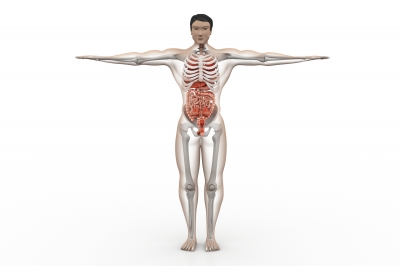| Do you suffer from any of the following symptoms? Irregular heartbeat or heart pains; Weakness and cramping; Fatigue and drowsiness; Stress and anxiety; Sleep disorders; Migraine headaches; Depression and mood swings; Weak bones; Indigestion and nausea. You may be suffering from magnesium deficiency. No, this doesn't mean you should load up your meals with extra salt - Find out below how you can increase your magnesium levels. |
| Did you know that floating for an hour in one of our float tanks can greatly increase your magnesium levels. More so than any supplement on the shelves - while giving you some relaxation. First off— what do we use in our water that has magnesium and makes you float? Epsom Salts are used to make the water as buoyant as it. But it isn't exactly a “salt” at all. Rather, it is a compound of the minerals magnesium and sulphate. Sulphates, such as those found in Epsom Salt can resolve headaches and even help the body to absorb more nutrients—while flushing toxins. |
Magnesium is a nutrient that the body needs to stay healthy. Magnesium is important for many processes in the body. It regulates muscle growth and functioning, nerve function, blood sugar levels, blood pressure, protein levels, and can even affect our DNA.
How does magnesium affect me?
Sleep - It can help you to get a better night sleep. When magnesium levels drop, the sleep regulating hormone melatonin is disturbed, causing your sleeping patterns to become irregular.
Stress and tension are often reasons why people suffer from insomnia and lack of sleep. Magnesium can help to bring balance and control stress hormones which can create a calming affect. It also increases serotonin levels in the brain, which relaxes the nervous system and creates a better mood.
Muscle Density - Magnesium is a major player in gaining bigger, stronger muscles. It allows the body to produce more insulin-like growth factor. It also plays an important role in loosening of tight muscles and flexibility (this is why salt baths are suggested for muscle aches). Low Magnesium results in the build up of lactic acid (which is partly responsible for post-exercise pain) causing pain and tightness and when muscles do not relax properly, cramps can occur.
Bone Health - There are about eighteen essential nutrients that contribute to bone health; Magnesium is definitely one of the most important, because it suppresses the hormone that breaks down bone, while stimulating a particular hormone called calcitonin which strengthens bones and encourages growth.
Overall General Health - Magnesium helps restore the body’s pH balance. It is also a necessary electrolyte essential for proper hydration and can be used to cleanse the bowels of toxins.
There are many other benefits of magnesium: It helps prevent stroke, diabetes, heart disease, period pain, and more.
Symptoms of poor magnesium intake can include muscle cramps, facial tics, poor sleep, and chronic pain. It pays to ensure that you get adequate magnesium before signs of deficiency occur.
One method of assessing your magnesium status is to simply contact your doctor and request magnesium testing. A magnesium test is generally done by testing blood serum, however these tests can be misleading. Only 1% of magnesium in the body is actually found in blood, making this test unreliable.
Here are a few tips to ensure you are not stripping your body from magnesium:
Keep Soft Drinks and Caffeine to a minimum
A lot dark coloured soft drinks contain substances that absorb magnesium inside the digestive tract, meaning that its full potential cannot be used by the body. So even if you are eating a balanced diet, by drinking soft drinks with your meals you are flushing magnesium out of your system. If you drink caffeinated beverages such as coffee, tea and soda regularly, your risk for magnesium deficiency is increased.
Eat less sugary foods
Refined sugar is not only a zero magnesium product but it also causes the body to excrete magnesium through the kidneys. The process of producing refined sugar from sugar cane removes molasses, stripping the magnesium content entirely.
Physical and Emotional Stress
Because stressful conditions require more magnesium use by the body, all such conditions may lead to deficiency (ever wonder why your tears taste salty?). Both psychological and physical forms of stress to the body such as surgeries, burns, and chronic disease can impact magnesium levels
Certain Medications can cause Magnesium deficiency
The effects of some medications have been shown to reduce magnesium levels in the body by encouraging kidney function, ridding the body of magnesium.
When you're laying in the float tank, the magnesium and sulphate that is in the water will pass through the skin, raising the levels detected in the blood. This is the quickest possible way to increase your levels of magnesium. Unlike taking a supplement or eating foods high in magnesium the body does not have to digest or breakdown anything, it is absorbed straight away.
Both magnesium and sulphates are best, and most easily absorbed through the skin—rather than the digestive tract—making a float the ideal place to receive them.
Bathing in magnesium sulphate (our float tanks) is an easy, safe and efficient way to correct deficiency. If you are worried about overcompensating for your deficiency by floating regularly, your body is more than capable of getting rid of any excess magnesium that you don't need.
Call us now on 9440 9453 to book in for your Floatation Therapy session or book online.
All information sourced from:
http://www.ancient-minerals.com/magnesium-deficiency/need-more/
http://www.floataway.com/index.php/floating/epsom-salt-magnesium-sulphate
http://www.hopefloatsusa.com/en/flotation-therapy/about





 RSS Feed
RSS Feed